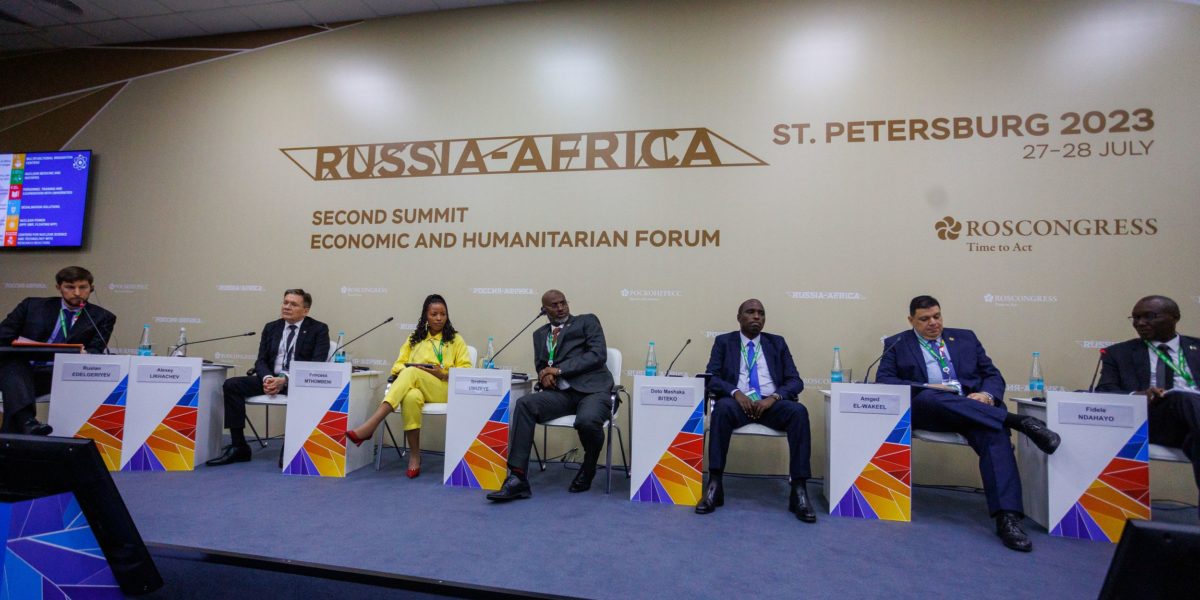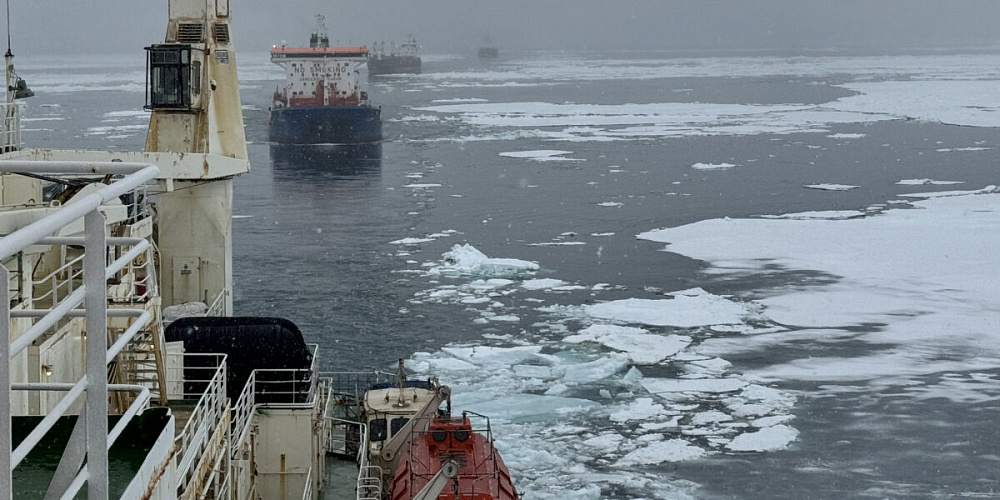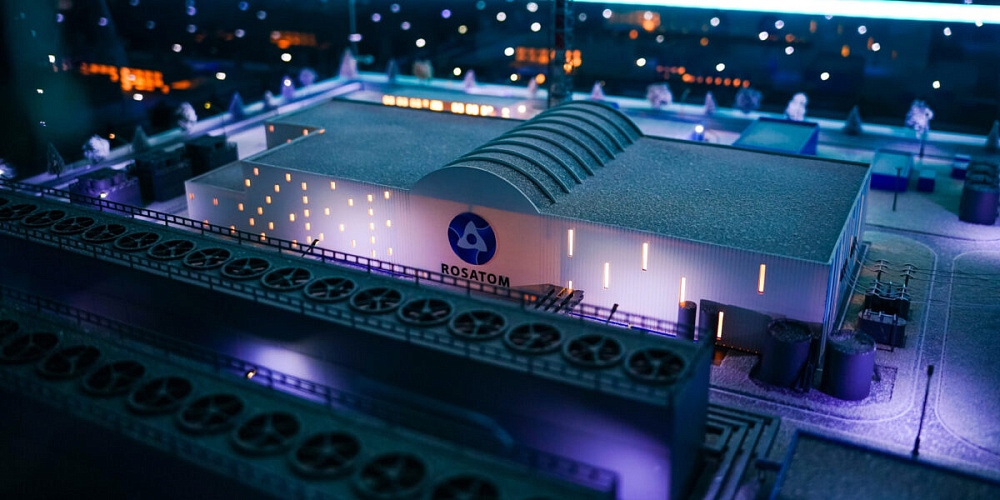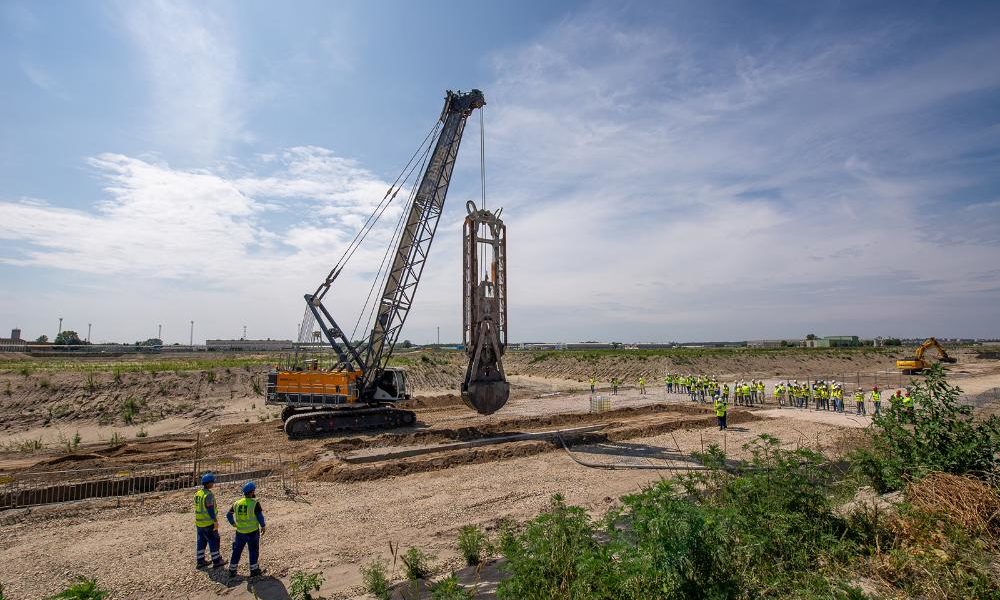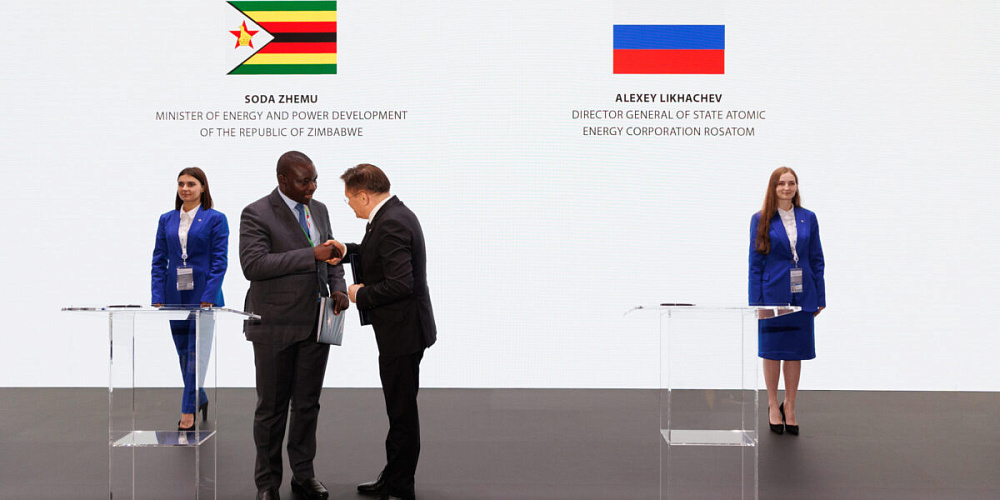The plenary session "Nuclear Technologies for the Development of Africa" powered by ROSATOM was held in Saint Petersburg at the Second Summit Russia – Africa Economic and Humanitarian Forum. The event was held in a hybrid format.
The event was attended by: Tanzanian Minister of Minerals Doto Mashaka Biteko, Zimbabwean Minister of Energy and Power Development Soda Zhemu, Minister of Hydraulics, Energy and Mines in Burundi Ibrahim Uwizeye, Executive Chairman of Nuclear Power Plants Authority of Egypt Amged S. El-Wakeel, CEO of the Rwanda Atomic Energy Board Fidel Ndahayo, Director General of ROSATOM Alexey Likhachev, and others. Ruslan Edelgeriyev, Special Presidential Representative on Climate Issues, was a moderator.
Attendees discussed the outlook for the development of peaceful atom in the African region and possible ways of cooperation in this area.
Alexey Likhachev said: "When we begin the cooperation with one or another newcomer country, or when we expand the work with a Nuclear Club member, we always build special trust relationship. The interstate cooperation in the nuclear field every time is on the agenda of the first persons, leaders of states and governments. At that, the cooperation may be successfully implemented, provided only when there is a serious trust relationship between the countries. The atomic power is too high to treat it just from the point of view of a business".
He also noted: "We always offer our partners a broad range of projects for assurance of the technological sovereignty. It is also about such technologies as atomedics, irradiation centers, research reactors, and wind power engineering, having close relations with the nuclear power engineering. It is very big portfolio of machine engineering technologies as well, since we undertake to learn the products manufacture together with local manufacturers, whose products will obtain atomic certificates".
Amged El-Wakeel, Board Chairman of Nuclear Power Plants Authority of the Arab Republic of Egypt, noted: “The Egyptian Civil Nuclear Power Programme, which is currently progressing through the construction of Egypt’s first nuclear power plant, the El-Dabaa Nuclear Power Plant, is of significant importance to Egypt. Already, the construction of the El-Dabaa Nuclear Power Plant, which is part of a wider industrialisation strategy, has had an immensely positive impact within Egypt, having both supported and expanded many local industries, as well as creating countless new opportunities for highly skilled jobs. The El-Dabaa Project has also been the cause of considerable human resource development within Egypt through initiatives such as the dedicated El-Dabaa Nuclear Vocational School. Nuclear energy will be absolutely essential in ensuring that Egypt achieves its energy strategy goals which are mainly focused on meeting the ever-increasing demand on electricity within the country, whilst at the same time doing so in a clean, sustainable, and affordable manner. Egypt has set an ambitious goal of renewable energy sources making up 42% of its total energy capacity by 2035, and it will be critical that such renewables are supported by a reliable, affordable and clean source of baseload power. This is exactly the role that nuclear energy will play in Egypt. Furthermore, by using nuclear energy, we will be able to reduce CO2 emissions and mitigate climate change. We can also use nuclear energy for the water desalination directly through heat or indirectly through the electricity produced. Therefore, nuclear energy has many benefits to Egypt and will contribute to achieving the UN’s Sustainable Development Goals”.
Minister of Minerals of the United Republic of Tanzania Doto Mashaka Biteko said: “For us, nuclear energy is something new, however the work on natural uranium resource is currently underway - we have been dealing with this project for several years. And we hope to see its fast development and significant investments very soon. We have a horizon until 2050. Demands are growing, everything is changing. As Food security issues need to be addressed, We want to consider a mix of combinations of several types of energy. We plan to reach the level of 10% our country’s GDP from the mining industry in 2025 and Uranium mining is one of the elements to achieve this goal”.
CEO of the Rwanda Atomic Energy Board Fidel Ndahayo said: “We have already been considering the issue of nuclear programme for 5 years. Once again, I would like to thank ROSATOM for the fruitful co-operation, strengthening the relationship between our countries. Of course, we need to look not only at traditional energy sources. We would like to consider the use of nuclear energy to meet our needs. About 70 per cent of the country's population has access to electricity and we hope to increase this share. We need reliability and stability, and nuclear power seems to be a very important solution, an important source, which is why we have embarked on this path”.
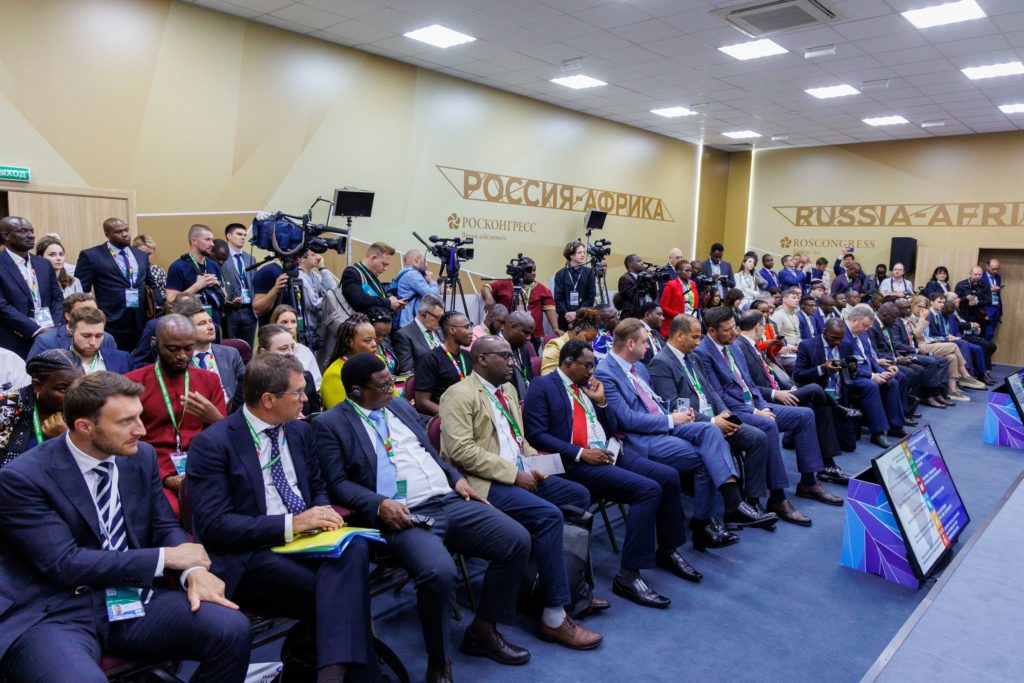
On the eve of the Forum, ROSATOM offered to the African countries the projects of technological sovereignty and inclusion of them into the technological chains created by Russia. It was stated by Alexey Likhachev. According to his words, these supposed to be from the initiatives for training the human resources for the nuclear industry and to the establishment of ventures in Africa.
Reference
The Second Summit Russia – Africa Economic and Humanitarian Forum is the highest-profile and largest-scale event in Russian – African relations, aimed at bringing about a fundamentally new level of mutually beneficial partnership to meet the challenges of the 21st century. The goal of the event is to promote efforts to strengthen comprehensive and equal cooperation between Russia and African nations across all areas of society including politics, security, economic relations, science and technology, and the cultural and humanitarian spheres.
The First Russia–Africa Summit took place on 23–24 October 2019 in Sochi under the motto of ‘For Peace, Security and Development’. This was the first time such a large-scale event had been held in the history of modern Russia, and was unprecedented in Russian–African relations. The participants identified priority areas of economic cooperation where concrete results could be achieved in the coming years. A closing declaration was adopted at the end of the Summit, outlining the approval of goals and objectives for the future development of Russian–African cooperation across politics, security, economics, science and technology, culture and the humanitarian sphere.
ROSATOM is one of global technological leaders, with capacities in the nuclear sector and beyond, and business partners in 50 countries. As one of the pioneers of the nuclear industry, ROSATOM has traditionally been at the forefront of the international nuclear market, including nuclear power plant construction, uranium mining and enrichment, and nuclear fuel fabrication and supply. Today, thanks to the unique expertise accumulated over 75 years, the company is conquering the markets of new promising high-tech products. Hydrogen energy, energy storage, nuclear medicine, wind energy, composite materials, logistics business, environmental solutions - in total, more than a hundred new businesses, which cement ROSATOM’s standing among the leading tech giants. The corporation includes about 350 enterprises and organizations employing a total of more than 330,000 people.
The ROSATOM business strategy is guided by the international sustainable development agenda. ROSATOM makes a significant contribution to the achievement of the UN Sustainable Development Goals as a low-carbon electricity company, developing nuclear, hydrogen and wind energy. Annually, Russian-designed nuclear power plants prevent more than 210 million tons of greenhouse gas emissions, which is the main cause of climate change. Since October 2020, ROSATOM has been a member of the United Nations Global Compact Network, the largest corporate social responsibility and sustainable development initiative for businesses across the world.

